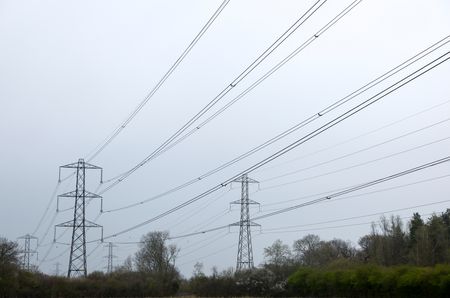By Susanna Twidale
LONDON (Reuters) -Millions of British households already grappling with strained budgets will see higher energy bills from October after regulator Ofgem increased its price cap by 2%, even as the government has been seeking to drive down energy costs.
The price hike by the regulator, a non-ministerial government department, comes after inflation hit its highest in 18 months in July and the government faces pressure over the affordability of its net zero plan.
The new cap of 1,755 pounds ($2,370.83) a year for average use of electricity and gas is up around 35 pounds from the previous cap for July-September.
Ofgem said the rise was due to an increase in network and policy costs.
While domestic energy prices have fallen since their peak in 2023, they remain around 50% higher than in the summer of 2021, before Russia’s invasion of Ukraine sent gas prices soaring and sparked an energy crisis in Europe.
The government in June said it would make an extra 2.7 million households eligible this winter for its warm home discount. Introduced in 2011, the discount will now support 6 million vulnerable households with energy bills worth 150 pounds.
However, Ofgem said the warm home discount extension added 1.42 pounds a month on average to all bills.
Consumer groups said energy costs remained unmanageable for many and urged more support for those struggling.
The government said the only way to reduce long-term energy bills was to cut Britain’s reliance on fossil fuels.
“The only answer for Britain is this government’s mission to get us off the rollercoaster of fossil fuel prices and onto clean, homegrown power we control,” Energy Minister Michael Shanks said in a statement.
Ofgem sets the quarterly price cap by using a formula that reflects wholesale energy prices, suppliers’ network costs and environmental and social levies.
Wholesale energy prices fell around 2% over the latest assessment period.
While the price cap could drop in January as wholesale prices drop, bills may in fact be kept higher by further policy costs such as a fee added to everyday bills to pay for the development of the Sizewell C nuclear plant, analysts at Cornwall Insight said.
“These policy-driven costs are part of a broader shift in how we fund the energy transition… yet some of the funding will ultimately need to come from billpayers,” said Craig Lowrey, principal consultant at Cornwall Insight.
($1 = 0.7402 pounds)
(Reporting by Susanna Twidale in London, Raechel Thankam Job in Bengaluru; Editing by Tomasz Janowski and Bernadette Baum)











